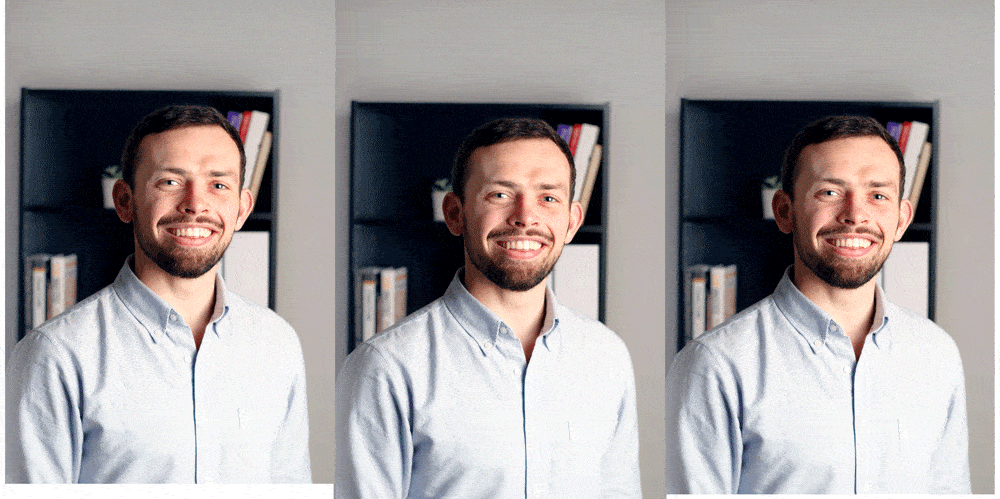Mark Moore, founder, Toothpic.
In our next CEO Q&A, Mark Moore, founder of Toothpic speaks about putting the patient experience first, retaining culture in a growing start-up and keeping people interested in work.
Toothpic’s tech-first approach sees us revolutionising the way dental care is accessed and delivered. Most people are too busy to think about their dental care until it’s a problem. The Toothpic platform provides tools like a SmileScore risk assessment, a painless check up from a dentist in our network by sharing just a few photos, a directory of the most appropriate dentists and of course price estimates for treatment if you do need it. Our goal is to develop and distribute a service that is so intuitive for consumers to use and so effective at catching and preventing dental problems that good dental care becomes as easy as ordering an Uber. In many ways, our team is our product – they come up with the solutions to the problems we’ve uncovered in the dental world and my main priority is to support the fantastic team we’ve built. I need to ensure they have the resources to do their best work, so that means at this stage, since we have been a B2B2C business, I spend much of my time on sales and more recently on supporting marketing to make sure we’re delivering for our clients – dental insurance companies and oral healthcare brands. My main goals are to make sure we’re running the right customer experiments and learning from these. For example a number large US dental insurance companies have deployed Toothpic to their members and my goal is to ensure these deployments are successful and scalable so that we can increase our covered member base quickly. Time. We’ve taken on a very complex problem trying to improve oral health using technology in a big but slow-moving market. In that context, having enough time to serve all the necessary stakeholders to the level that we’d like to is a challenge, but one I think we’ve proven ourselves to be quite good at – especially when we consider how our product has enhanced the offering of insurance companies we work with. Long Sale Cycles. As a good friend of mine put it, we’ve been effectively elephant hunting given the size of the companies we’re selling to and their natural pace of innovation. Empowering internal champions at those companies to overcome commercial inertia – ‘this is how we’ve done it for the last 40 years’ is a constant challenge but I think we’ve found some chinks in the armour there too. We hire smart, sound people that we like to spend time with and that genuinely enjoy coming to work. Of course we take feedback from the market and customers but we then allow our team to propose and develop their own processes, features or solutions. A philosophy at Apple is to hire smart people and not to tell them what to do and in many ways we try to live by that having found that it keeps people genuinely interested in their work and the business. Consumerization and the way dental care is accessed, delivered and paid for hasn’t changed much in 50 years but those individuals who consume it now have radically different expectations to their parents and grandparents. We expect to be informed, empowered and in control. That means having data and information at our fingertips on our needs, options and prices, having a slick user experience like we do with consumer brands and technology and feeling like services are personalised for us. Serving these new consumer expectations is a major challenge for incumbents in the dental sector from dental brands, dental practices and dental insurers. The disintermediation of legacy Dental insurers means many large dental insurance companies are being squeezed out by multiline carriers (joint health & dental insurers) who can bundle dental coverage as an add-on with the much more expensive health insurance as well as some employers and consumers moving to essentially self-insurance for low cost treatments, similar to what has happened with high deductible plans in the US Health Insurance sector. This shift means that dental insurers are struggling to remain relevant to their customer base and need to diversify their offerings. For a long time insurance companies have been essentially financial risk managers. However, there’s been a shift focusing more on fee-for-value. With the growing cost of healthcare in the US and the Affordable Care Act (Obamacare) an owness and penalties are being placed on insurers to play their part in reducing the burden of disease and actually help to improve health outcomes. This is being spearheaded in the public insurance space (Medicare & Medicaid) but private payers are also pushing insurers to reduce costs. Luckily most dental disease is preventable so there is an opportunity to reduce costs with entirely new ways of delivering care and managing dental risk in general and that’s where we come in. Everybody in the sector is using more technology. From consumers researching their dentists online (or on Instagram!) to dentists using advanced imaging in their offices to insurance companies using AI to automate their workflows. Despite this trend we have seen very little consumer dental tech focussed on improving outcomes for patients up to now. Better alignment of incentives amongst the stakeholders. The incentive system is not set up to improve health outcomes and the proof is in the consistently increasing cost of healthcare. We’ve been lucky to hire mostly through our personal networks to date however as we grow the team it seems the larger technology companies in Dublin end up competing with smaller companies like ourselves, particularly for software engineers. My co-founder & CTO Shane Owens ends up going for a lot of lunches with engineers to find talented people who are comfortable with the realities of a growing startup company. His main focus currently is getting to know great backend and mobile developers who want to have more responsibility than they currently do in bigger teams. Although we have only operated in the US to date, we plan to expand to a number of European markets in early 2019. Most Irish companies are rightly concerned with trade relations under Brexit but we are more focussed on the implications for our technology infrastructure and regulations for data storage and transmission. We plan to store European member data in German data centres, which have some of the highest standards for data protection, but with the UK outside of the EU this could delay expansion plans there as we reconsider our specific data and regulatory needs. Success for me is making meaningful progress towards our mission of improving the oral health of our users and finding new ways to use technology to achieve that. I’m driven by a simple fact that I learned when I was a child – dental disease is preventable but yet most people have it so that’s an interesting problem and I love solving problems especially if they haven’t been solved before. Always have two. Early stage companies navigate uncertain waters all the time so having a backup plan when the first set experiment doesn’t pan out helps you live to fight another day and to be there at the end when others have quit. Growing the team and maintaining such an enjoyable culture to work in has been huge for me. It was always a concern that as we grew we might lose our sense of identity and spirit of serious fun but that hasn’t happened. Agreeing a major commercial deal that was nearly a year in the making was also tremendously validating for the sector we’re in and has helped us to close others on the back of it. The field of dental tech is still quite young but big companies have finally woken up to what we saw 5 years ago and our next phase is to deliver on that promise for these partners – to bring the dental industry into the 21st century with consumer technology and putting the patient experience and their goals at the centre of everything we do. We’re also very excited to bring this innovation to Europe next year where a number of progressive partners are already preparing for us. By the end of 2018 we plan to be contracted with dental insurers covering nearly 30% of the US dental insured market and our consumer launch in the US is currently planned for late 2018. We also have plans to expand to Europe early next year in partnership with some of our multinational clients. It’s going to be a busy year for growth. We’re already recognized as a leader in dental technology for insurance companies in the US. By this time next year we’d like to have similar recognition amongst consumers as the most convenient and effective way to manage their oral health and all things dental. Q. What are your main priorities and goals in your role?
Q. What are your biggest challenges as CEO?
Q. How do you keep your team/staff motivated?
Q. What are the challenges facing the industry going forward?
Q. What new trends are emerging in your industry?
Q. Are there any major changes you would like to see in your sector?
Q. As an employer are you finding any skills gaps in the market?
Q. How will Brexit affect you, or have you started to feel the effects already?
Q. How do you define success and what drives you to succeed?
Q. What’s the best advice you’ve been given, or would give, in business?
Q. What have been your highlights in business over the past year?
Q. What’s next for your company?
Q. What opportunities or plans for growth do you see in 2018?
Q. Where do you want your business/brand to be this time next year?
Having a backup plan when the first set experiment doesn’t pan out helps you live to fight another day.







